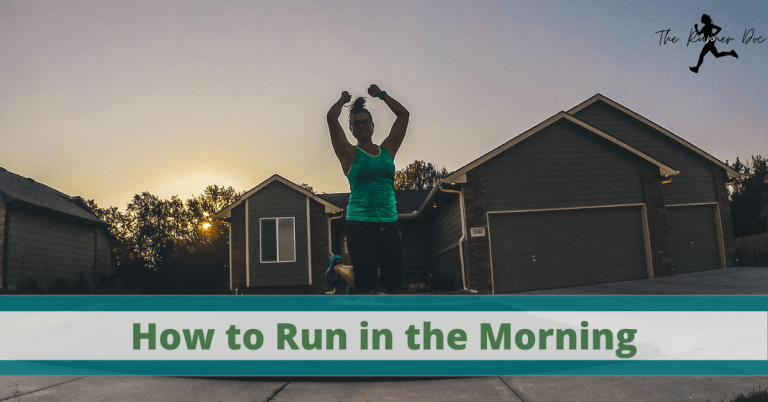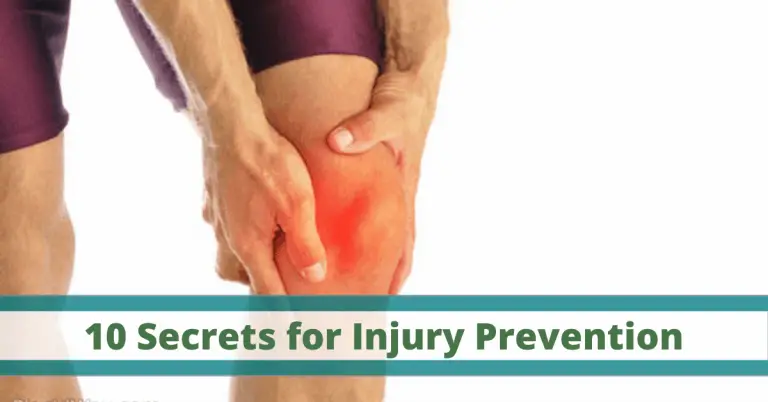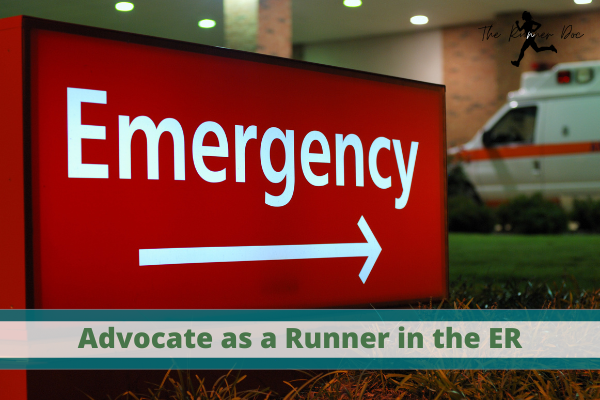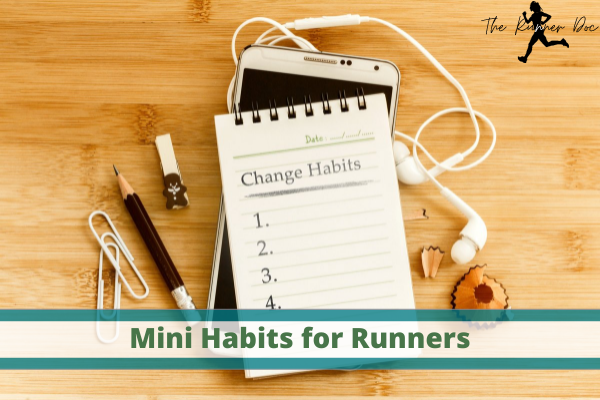Running in the Humidity and Heat: How to Beat the Temps all Summer!
Tips for Running in the Humidity
Running in the heat and humidity sucks. I really don’t like it. I like cold weather running, but most of us have to put up with the humidity at some point.
The majority of places in the United States have humidity levels all year. Alaska, with the greatest humidity amount but the lowest average dew point, is an exception. Humidity will be a problem for most of us at some time during the year, especially if we live in regions where there is a lot of moisture.
But dew-point is the better measure to use when thinking about how the humidity will affect us.
I’m from Kansas, which ranks in the top 20 for average dew point. I run in the humidity frequently since I’m from there. This isn’t to imply that Kansas has comparable amounts of humidity as Hawaii, Florida, or Louisiana on that list (the three states with the highest humidities), but we still have a long way to go this summer.
But how do you run in the heat and humidity? Is it even safe?
Short answer? You let your body acclimate and Yes it CAN be safe to run in high humidity. IF you are prepared.
If you’re planning to move somewhere with low humidity and dew points, your best options are Alaska, Nevada, Wyoming, or Utah. These places certainly wouldn’t be horrible to live in – in fact, depending on what you like, one of them might be suited for you perfectly. For example, if you love the wide-open range then maybe consider moving to Wyoming – I hear it’s lovely there.
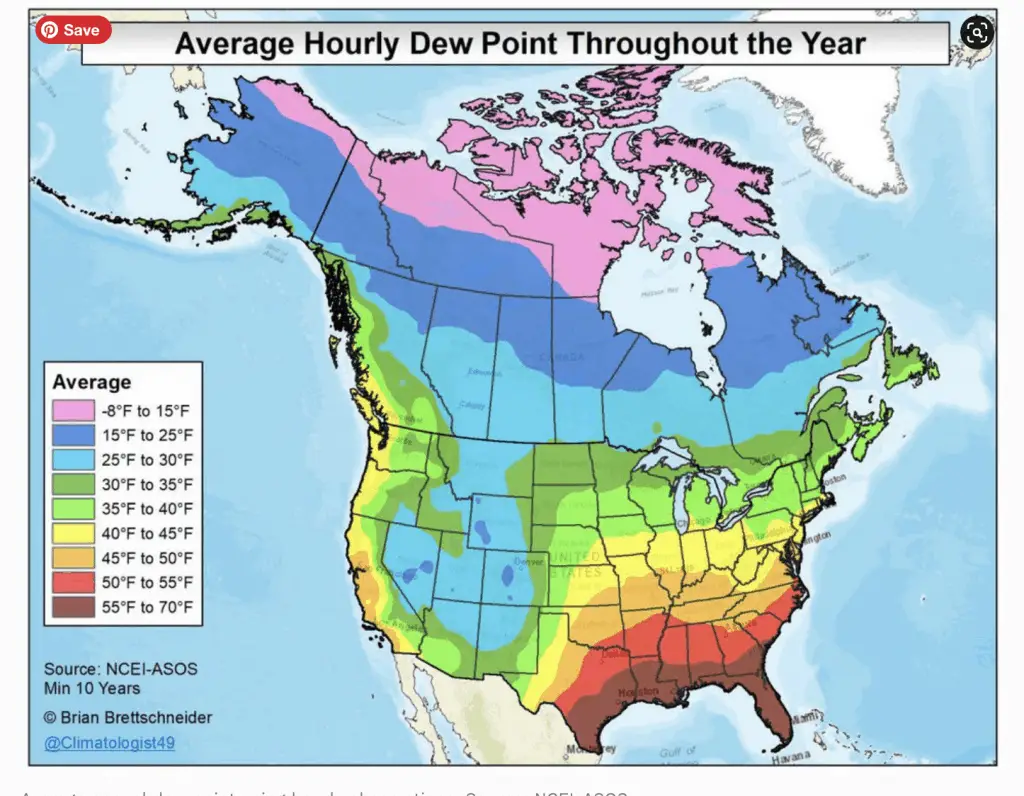
Weather Lesson – Humidity vs Dew Point when Running
What’s the difference? What should you look at?
Both.
The relative humidity and dew point are two factors to consider. Because the two work together to influence how you feel on your run. A dew point of 65°F or higher makes it feel sticky outside, whereas 70°F is really very sticky and unpleasant for a run.
The air temperature is also a consideration, of course. The humidity will have a greater effect on how you feel the higher the temperature. So, running in 80°F and 80% relative humidity will feel different than running in 90°F with the same humidity.
If you want a great and easy-to-understand explanation check out this article about dew point vs humidity!
To sum it up:
– If the dew point is high, it will feel sticky and muggy outside.
– If the relative humidity is high, there will be more water vapor in the air (but not necessarily making it feel sticky).
Why Humidity Matters when Running
Sweating is the natural response of our bodies to increase body temperature. As we sweat, our bodies cool down through evaporation. However, when the humidity is high, there is less evaporation going on.
This simply implies that we aren’t able to cool ourselves as effectively because the perspiration on our bodies isn’t drying up.
Since the perspiration on our bodies takes longer to evaporate, we’ll naturally produce even more sweat in order to try to cool down while running. To keep us cool, increasing sweat production consumes even more energy. As a result, we have less energy left over for running, making it feel so difficult.
Running in the Humidity Chart – Pace Adjustments for Humidity
The table below provides some suggested pace adjustments for different humidities.
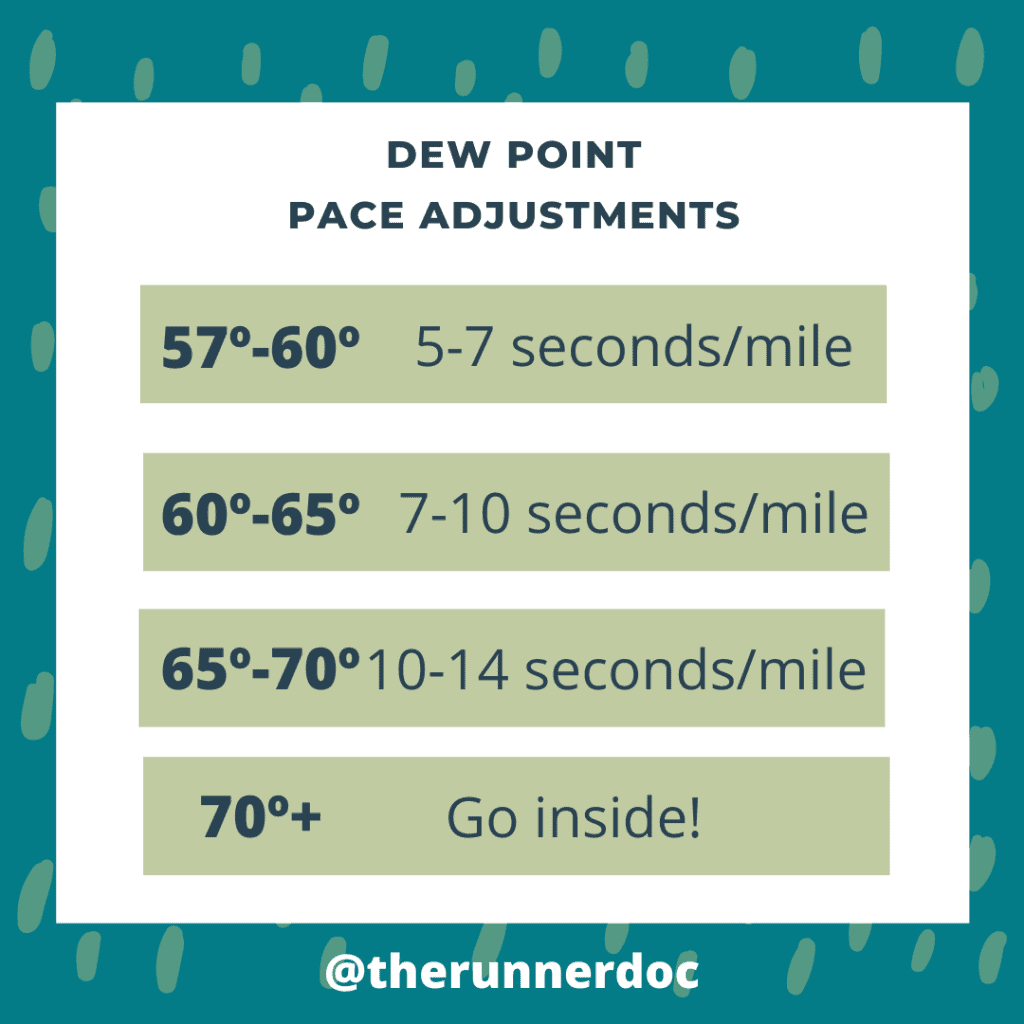
Tips for Running in Humidity and Heat
Pace for Runs in Heat and Humidity Adjustments
To start, change your speeds as noted earlier. Even better, I prefer training based on effort or heart rate during hot summer months instead of pace.
When you adjust your pace according to the weather, it is better for both mental and physical health. It can be very discouraging to not hit your “normal” paces due too hot and humid weather conditions!
Hydrate Well When Running in Heat and Humidity
This isn’t just for your run; it also applies to all other activities. Runners should drink plenty of water throughout the day, whether it’s summer or winter. However, when temperatures rise and humidity levels increase, we must be even more vigilant about our hydration!
I personally like to use either Liquid IV or Body Armor to get some electrolytes and carbs in as well as just plain water!
I love my anojie hydration vest for my long runs that I reviewed a while back! This is the key for me getting through those hot and humid runs when I need to carry a lot of water with me!
Run Early to Beat the Humidity
I already like to run early in the morning due to scheduling and being a morning person. In the summer heat, this comes in really handy for me because that is honestly the best time to run. It is still coolish out from the overnight lows.
Don’t get me wrong. This morning it was 72 degrees out with a dew point of 71. Which pretty much sucked. BUT, it was better than being 80 something with 71 dew point later in the morning!
Plan a shady route for summer running
If you must run when the sun is out. Plan your run to be nice and shady as well as have spots to hide or stop for water.
Summer is also a good time to hit those shady trail runs. For one, they are more shaded a lot of times than city streets. Second, the dirt doesn’t absorb and radiate as much heat as asphalt and concrete do!
Another thing to think about when you plan your route no matter the time of day is the wind. If there is even a light breeze out plan to run the last part of your run (when you are the hottest) into the breeze. Unlike fall and winter when we are when we want the wind at our back, summer is the time to run into the wind.
Why run into the wind? It will help evaporate your sweat and keep you cooler during the hottest part of your run!
Dress Appropriately for runs in the Heat and Humidity
This is seriously key, friends!
Wearing the right gear can make or break a run in hot weather. In general, you want to wear light-colored, loose-fitting clothing. I am someone who LOVES TO SWEAT.
However, what you really want is for that sweat to evaporate quickly. So, synthetic fabrics are going to be your friend here – not cotton!
This is also the time of year to embrace the sports bra squad if you are a lady and shirtless crew for men! Don’t worry about how you look, you will be a sweaty mess no matter what, and really, who cares what your body looks like? I’d rather show off my curves than be dying of heat!
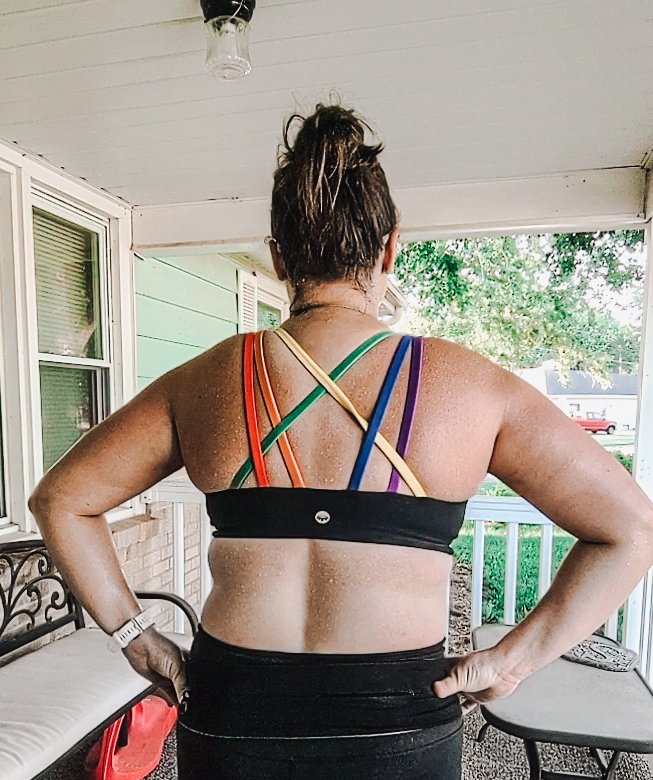
Be Careful of Overexerting in the Heat and Humidity
This is very important, especially if you are new to running or not used to running in these conditions. It is so easy to overdo it because you don’t realize how hard your body is working to keep cool.
Start slow and build up your endurance for running in the heat. If you feel yourself getting too hot, take a walk break.
It is better to finish your run a little slower than normal then to have to call for help because you are overheating!
Dangers of Running in the Humidity
When running in high humidity, there are some risks and things to look out for. Even while we want to get out there and keep running, we must be cautious! While these hazards are listed below, they are uncommon.
Heat Cramps when Running:
These are muscle spasms and cramps that are caused by a loss of electrolytes. This is probably the most common thing to happen. Remember that when you are hydrating you need to be replenishing your electrolytes with a sports drink and not just water!
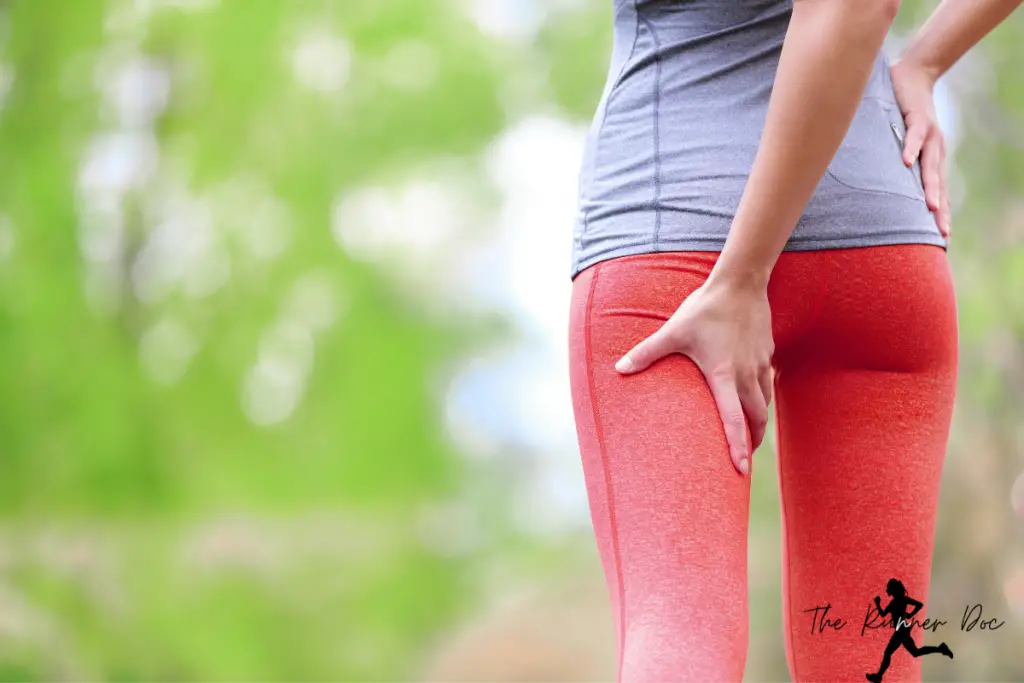
Dehydration when Running in the Humidity:
Remember to start your run hydrated (both from water and extra electrolytes) and know that some dehydration is normal. If you are running in the heat and humidity, you will sweat more than usual, and that is okay. Just be sure to keep up with your fluid intake! Most runners can safely be dehydrated up to 4% but anything more can start to cause problems.
Heat Exhaustion when Running:
If you have heat exhaustion you need to stop your workout immediately. This happens when dehydration and electrolyte depletion become more severe. The body can no longer sweat to cool down, and the skin turns red and hot. You may feel nauseous, have a headache, and feel dizzy or lightheaded.
If you think you have heat exhaustion, stop your run, remove any excess clothing, and find a cool place to sit or lie down. Drink fluids with electrolytes and seek medical attention if symptoms persist!
Heat Stroke when Running:
Heat stroke is a life-threatening condition and requires immediate medical attention!
This happens when the body’s temperature rises to 104 degrees F or above. The skin turns red, hot, and dry (no sweating), and the person may become confused or delirious.
If you think someone has heat stroke, call 911 immediately and try to cool the person down with whatever you can – a wet towel, spraying them with water, etc.
Why Can’t I Breathe When Running in the Humidity
This comes back to the amount of effort and the increased energy required to run in hot and humid conditions. This increased energy expenditure increases your heart rate. The higher your heart rate typically the harder it is to breathe.
As temperature rises and humidity, the amount of water molecules in the air also increases. Therefore, when you breathe in you are getting less oxygen than you would in cooler and dryer temperatures when the oxygen saturation is higher.
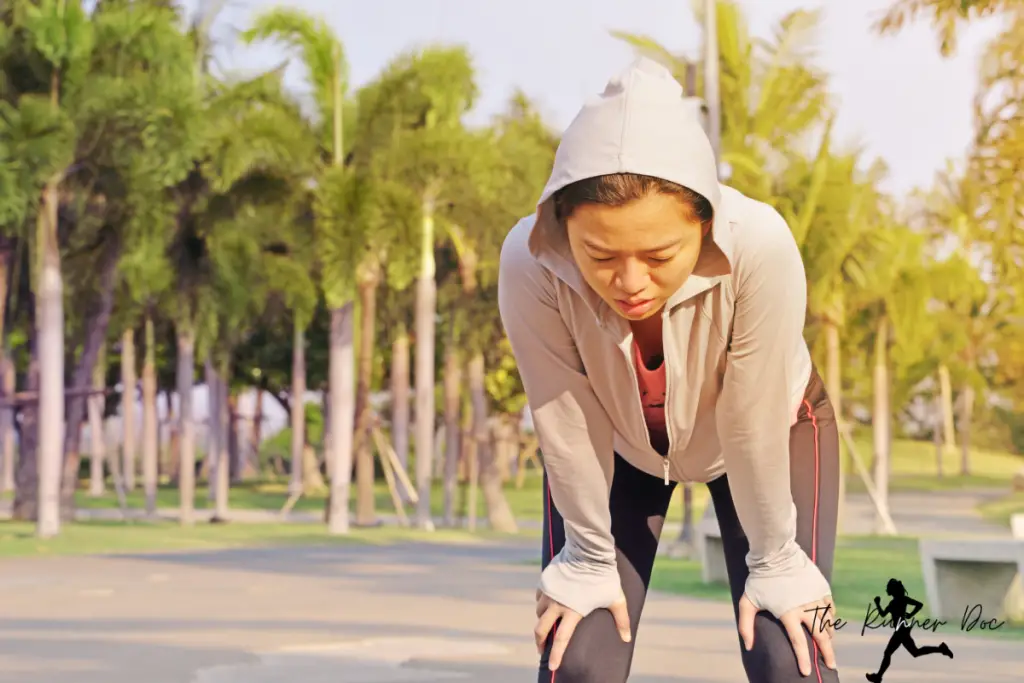
Basically, there is less oxygen in the humid air.
This is obviously a simplified explanation to the breathing issue but just know that humidity makes it harder to breathe.
Even more so if you have asthma!! Hello me!!! Use your inhaler lol!
Benefits of Running in the Humidity
None. Zip zero zilch. I hate it and don’t want to talk about them.
Just kidding….kinda.
I truly do hate running in the humidity but there are some actual benefits to heat training for your running so I guess we will talk about them.
Summer running not only helps runners improve their fall race times, but also teaches the body how to sweat at lower temps.
Additionally, your body becomes accustomed to the heat and humidity overtime, making it easier for you to regulate your body temperature. With this adaptation also comes less salty sweat, which allows you to maintain a proper electrolyte balance while running.
Final Thoughts on Running in the Heat and Humidity
Summer running can be tough, but it’s worth it to train in the heat and humidity. By adapting your body to the conditions, you’ll not only improve your race times come fall, but you’ll also become better acclimated to warmer temperatures.
Stay hydrated by drinking fluids with electrolytes, and you will be ready to FALL into good race times next season!
Related articles to Running in the Humidity
How to Run in the Morning Easily
The Most Common Training Errors for Runners
Keep Running!
AFFILIATE DISCLOSURE
As an Amazon Associate, I earn from qualifying purchases. This post may contain affiliate links. If you use these links to buy something we may earn a commission. The Site may contain links to affiliate websites, and we receive an affiliate commission for any purchases made by you on the affiliate website using such links.
All information should be used as a tool for more knowledge on the subject topic, to use as references for later articles where applicable, or just to keep it in mind during future exercise routines or activities.
This article is not meant to give medical advice or to replace professional health care. Should any ailment occur please contact your doctor or physical therapist immediately to keep yourself safe and prevent further damage.
The author is not liable for any personal or commercial damage directly or indirectly related to the content hereof. You are responsible for adhering to local laws and regulations regarding health & safety, including proper use of equipment or safety gear, and compliance with governing healthcare associations, and state, and federal regulations.

Running in the Humidity in the Summer
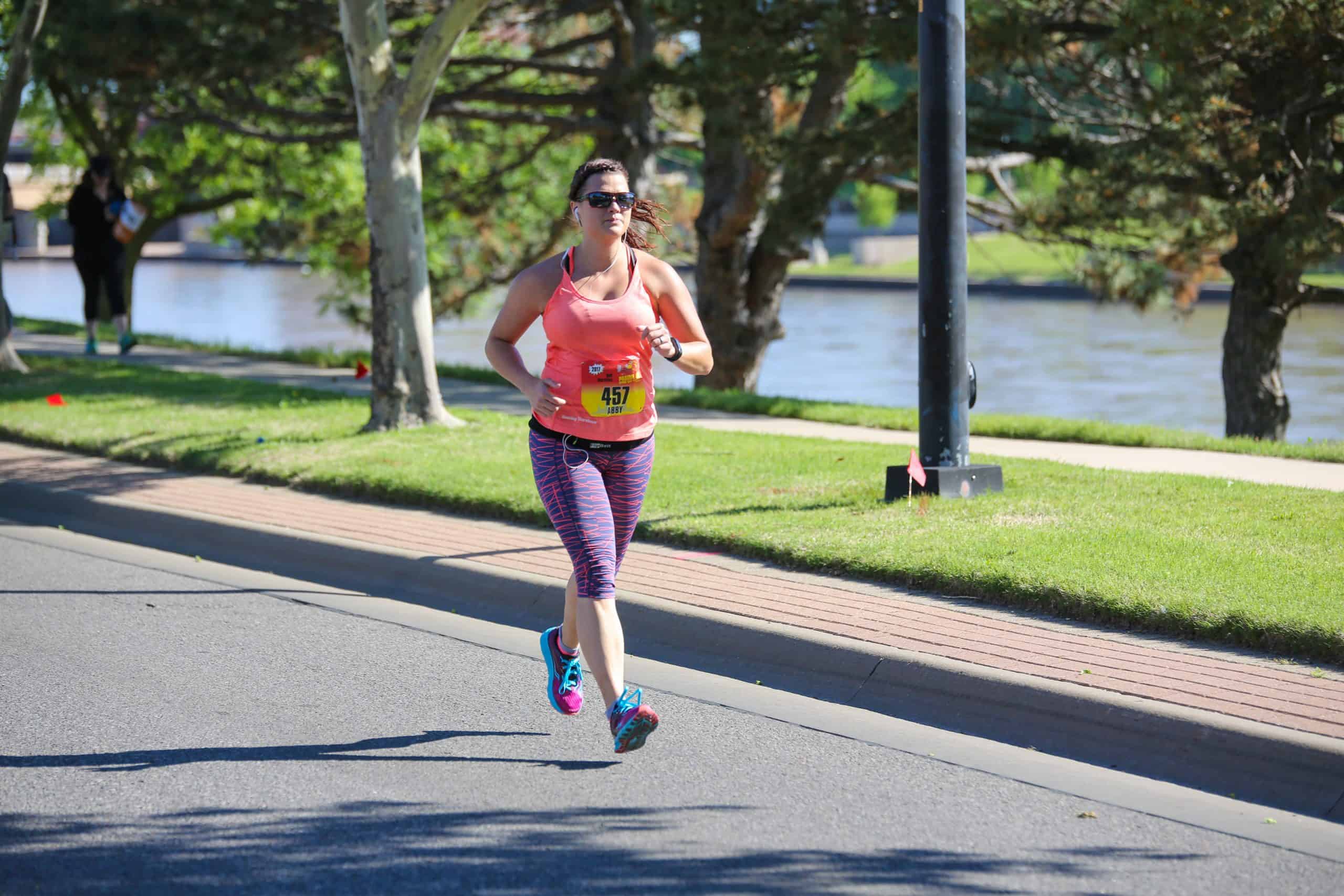
Dr. Abby Siler, PT, DPT is a Physical Therapist with 10 years of experience in a variety of settings. She has spent the majority of her time treating athletes in orthopedic clinics and worker’s compensation cases. She is a runner herself for the past 15 years and a lifelong athlete. Dr. Abby loves to teach runners how to stay injury free and out of her clinic.

